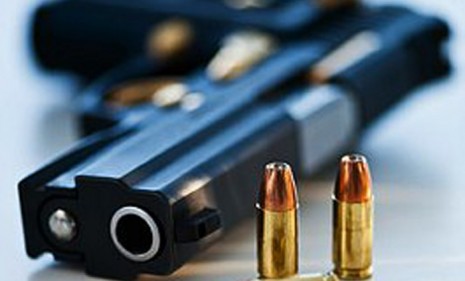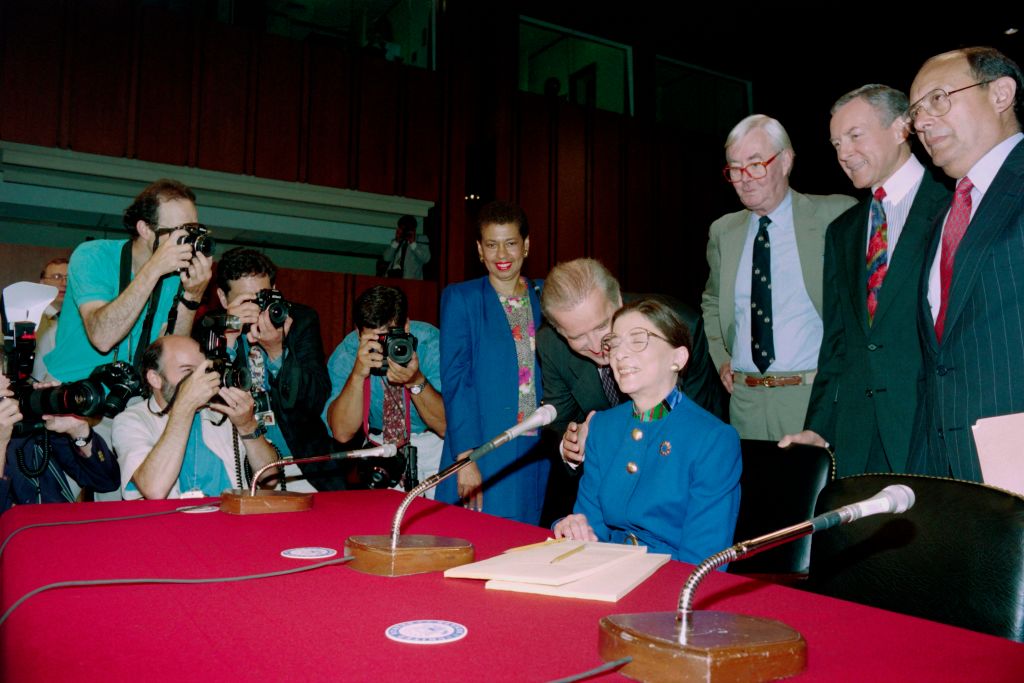Supreme Court gun ruling: 5 cities on the firing line
The nation's high court has effectively nixed Chicago's handgun ban. Which other cities will now face challenges to their gun laws?

A free daily email with the biggest news stories of the day – and the best features from TheWeek.com
You are now subscribed
Your newsletter sign-up was successful
The Supreme Court all but stuck down Chicago's tough handgun ban Monday, ruling that the Second Amendment guarantees Americans the personal right to have a gun in their home for self-defense. Lower federal courts will now have to decide if individual state and city laws violate the high court's new, vague standard. Chicago's law will almost certainly be ruled unconstitutional, but what other cities are at risk? Here's a look at gun rights advocates' Top 5 targets:
CHICAGO
Chicago's 1982 blanket ban on handgun ownership is on its way out, as is the similar prohibition in the nearby suburb of Oak Park, which voters approved in 1985. Chicago Mayor Richard Daley says the city will enact new rules in response to the ruling, possibly requiring handgun insurance, registration of all weapons, and mandated training. National Rifle Association chief Wayne LaPierre says any "byzantine labyrinth of regulations and restrictions" would not meet the spirit of the decision. "The opinion of Mayor Daley doesn't entitle him to throw out the Bill of Rights." (Watch an AP report about Chicago's new gun laws)
The Week
Escape your echo chamber. Get the facts behind the news, plus analysis from multiple perspectives.

Sign up for The Week's Free Newsletters
From our morning news briefing to a weekly Good News Newsletter, get the best of The Week delivered directly to your inbox.
From our morning news briefing to a weekly Good News Newsletter, get the best of The Week delivered directly to your inbox.
NEW YORK CITY
The NRA says its next big target is New York, which has robust licensing and registration laws, relatively high permit fees, and an active proponent of gun control in Mayor Michael Bloomberg. Tom King, president of the New York State Rifle & Pistol Association, also says city gun laws favor "celebrities," the "politically connected," and "wealthy people" — to which Bloomberg responds, "That's why you have the First Amendment, so they can say things that just aren't true without going to jail." He adds that New York's laws fall under Justice Samuel Alito's "reasonable regulations" exemption.
SAN FRANCISCO
The NRA and other gun advocates have already challenged San Francisco laws: Handguns must be stored in locked containers or have a trigger lock; ammunition can only be sold for use in sporting activities; and firing weapons inside the city limits is forbidden. Pro-gun groups also complain that San Francisco police are stingy with issuing concealed-weapons permits. The city laws should be overturned because they keep "handguns inoperable and, in effect, useless for immediate self-defense purposes," the NRA lawsuit says. City spokesman Matt Dorsey disagrees, saying Monday's court ruling "leaves plenty of room for reasonable restrictions like San Francisco’s to protect public safety."
A free daily email with the biggest news stories of the day – and the best features from TheWeek.com
ALAMEDA COUNTY, CA
Home to Berkeley and Oakland, Alameda County banned all guns from county property in 1999, effectively blocking gun shows from county fairgrounds. A three-judge panel of the 9th Circuit Court of Appeals upheld the law, but the full 11-member court agreed to rehear the case after the Supreme Court ruled on the Chicago case. The Supreme Court didn't specify permissible handgun-free zones, except for schools, and the Alameda decision "could clarify what, for example, is a 'sensitive place' from which guns may be excluded," says Lyle Denniston in ScotusBlog.
NEWARK, NJ
As New Jersey's largest city, Newark will be most affected by the upcoming challenges to the state's gun laws, which include limits on semiautomatic weapons, a one-handgun-a-month purchase cap, and police-issued permits for each gun that require state and federal background checks, including fingerprinting. The once-a-month law "doesn’t take away your right to bear arms, so in that sense, it may be upheld," says Rutgers constitutional scholar Alan Tarr. "But on the other hand, if you had a law that said you could only write one editorial a month, you’d run into trouble."
-
 Sean Bean brings ‘charisma’ and warmth to Get Birding
Sean Bean brings ‘charisma’ and warmth to Get BirdingThe Week Recommends Surprise new host of RSPB’s birdwatching podcast is a hit
-
 Film reviews: ‘Send Help’ and ‘Private Life’
Film reviews: ‘Send Help’ and ‘Private Life’Feature An office doormat is stranded alone with her awful boss and a frazzled therapist turns amateur murder investigator
-
 Movies to watch in February
Movies to watch in Februarythe week recommends Time travelers, multiverse hoppers and an Iraqi parable highlight this month’s offerings during the depths of winter
